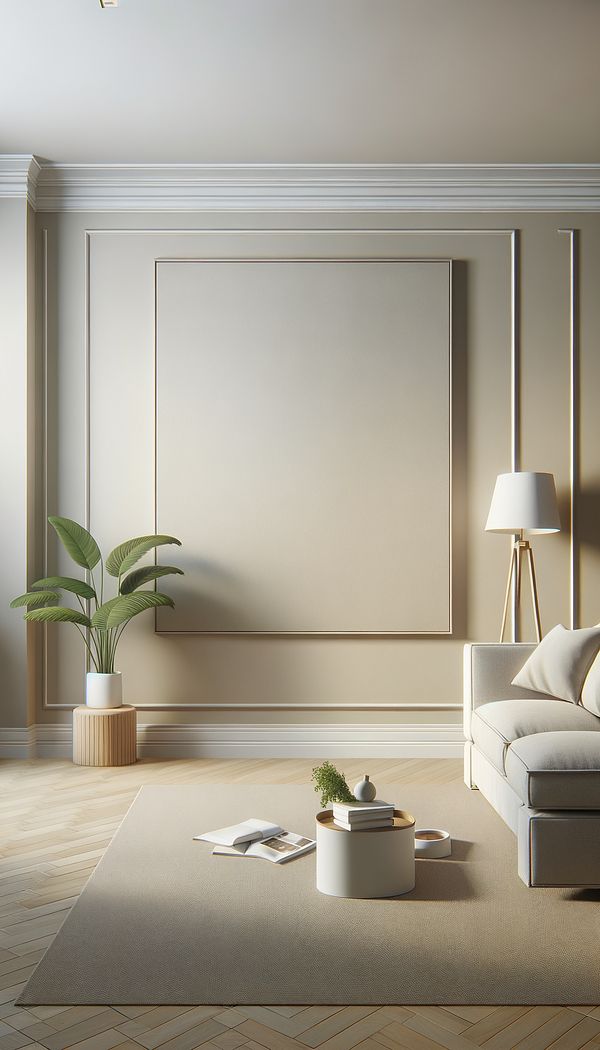What is Emulsion?
Emulsion refers to a water-based paint with a smooth, matte finish.
Description
In the world of interior design, emulsion plays a crucial role, especially when it comes to wall treatments and finishes. This type of paint is water-based, meaning that it primarily consists of water as its solvent. What sets emulsion apart is its texture and finish. Unlike oil-based paints which can have a glossy or shiny appearance, emulsion typically leaves a velvety, matte finish once dry.
Due to its composition, emulsion paint is highly favored for its quick drying times and ease of application. It's also known for being less toxic, having a lower level of volatile organic compounds (VOCs) compared to oil-based alternatives. This makes it a healthier choice for indoor environments, contributing to better air quality within a space. Emulsion paint is versatile, being suitable for a wide range of surfaces including walls, ceilings, and sometimes even floors. Its ability to adhere well to surfaces and its durable nature makes it a popular choice among interior designers and homeowners alike.
Another significant advantage is its ease of maintenance. Emulsion paint surfaces can usually be cleaned with just soap and water, helping to keep spaces looking fresh and new without much effort. Beyond functional benefits, the texture and finish provided by emulsion paints offer aesthetic appeal, allowing for a seamless integration into various design styles.
Usage
Emulsion is commonly used in residential and commercial spaces for wall painting, due to its quick drying nature and minimal odor. It is a preferred choice for bedrooms, living rooms, and other spaces where a matte finish is desired. Interior designers often recommend emulsion paint for areas that receive a lot of light, as its finish helps to reduce glare.
FAQs
-
Can emulsion be used on all types of surfaces?
While emulsion is most commonly applied to walls and ceilings, it can also be suitable for other surfaces if prepared correctly. However, it's not typically recommended for surfaces that require a high level of durability and moisture resistance, such as kitchens and bathrooms.
-
How is emulsion paint environmentally friendly?
Emulsion paint is better for the environment and indoor air quality due to its lower levels of volatile organic compounds (VOCs) compared to oil-based paints. This contributes to less air pollution and a healthier living environment.
-
Is it necessary to prime surfaces before applying emulsion paint?
While emulsion can adhere well to many surfaces, using a primer can enhance its durability and finish, especially on new or highly absorbent surfaces.
-
Can emulsion paint be cleaned easily?
Yes, one of the advantages of emulsion paint is its ease of maintenance. Surfaces painted with emulsion can usually be cleaned with just soap and water.
Practical Application
When choosing emulsion for your project, consider the lighting in the room and the desired ambiance. Its matte finish can help reduce glare in brightly lit areas, making spaces feel more comfortable. Always ensure the surface is clean and, if necessary, primed before application to achieve the best results. Regular cleaning of emulsion-painted surfaces can help maintain their appearance over time. For areas that require more durability, such as bathrooms and kitchens, consider using specific types of emulsion paint designed for these environments.
-
Decorative Techniques322 articles
-
Wall Treatments & Finishes157 articles
-
Sustainability & Eco-Friendly Design69 articles
-
Building Trade ProfessionalA building trade professional is an expert skilled in the construction, renovation, or repair of buildings.
-
WallpaperWallpaper is a material used to decorate the interior walls of a room.
-
SpandrelA spandrel is the triangular space created between the outer curve of an arch and the framework enclosing it.
-
BiasBias in interior design refers to the diagonal direction of fabric grain.
-
BarkclothBarkcloth is a versatile textile made from the inner bark of certain trees.
